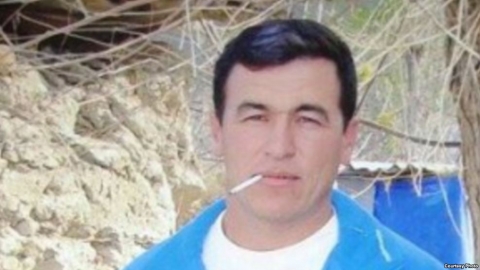Relatives of Tajik labor migrant, who was beaten to death by Russian policemen, will receive 200,000 Russian rubles (equivalent to 3,000 U.S. dollars) in moral compensation though they demanded 3 million Russian rubles as compensation.
According to information posted on the website of Russia’s Committee for the Prevention of Torture, a curt in Moscow’s Zamoskvoretsk district rule on May 18 that 200,000 Russian ruble swill be paid as moral compensation to Ilhom Alikhonov, the brother of Farrukh Urozov who was beaten to death by officers of the Solnechnogorsk police station in 2014.
Recall, a court in Solnechnogorsk City sentenced Stanislav Deikun, Andrey Chernyshev and Vladimir Gordeyev involved in death of the 39-year-old Tajik migrant Farrukh Urozov to 7½ years each on June 15, 2016.
According to the website of the Committee for the Prevention of Torture, the sentence followed their conviction on charges of abusing office using violence, weapons or special equipment, which inflicted grave consequences (Article 286 (3) of Russia’s Penal Code) and inflicting grave bodily injury leading to the death by negligence (Article 111 (4) of Russia’s Penal Code).
They are serving their terms in a high-security penal colony.
Meanwhile, a prosecutor in the trial of the police officers asked the court to sentence them to a nine-year prison term each.
The Committee for the Prevention of Torture noted that on September 26, 2014 a Moscow-area resident Ilhom Alikhonov applied to the Committee for the Prevention of Torture for legal support. He told the human rights defenders that in the evening of September 17, 2014 when he returned home; his brother Farrukh Urozov was asleep. In about ten minutes time several Patrol-and-Guard Service officers entered his home together with the brothers’ neighbor.
According to Ilhom, having applied physical violence, the police officers woke up his brother, handcuffed him and took him to the police department. As Ilhom learned later, Farrukh was detained upon suspicion of using violence against the six-year-old daughter of their neighbor.
Ilhom explained that after a while police officers came up to his house again and this time they took him together with his mate Firdavs Sattorov to the same police station. There Alikhonov heard the loud cries of his brother, who was in one of the office rooms. For some time he even managed to see Farrukh through a cracked door: the brother was sitting on the floor with hands tied, a lot of bruises and scratches were clearly seen on his face, there was blood on the floor.
Early in the morning of September 18, Ilhom and Firdavs were released from the police station. Several hours later they learned that Farrukh Urozov died.
According to the forensic medical examination Urozov's body and limbs were hit over 75 times. In the course of the battery 12 ribs were broken. Farrukh Urozov reportedly died of multiple traumas and strangulation.
Criminal case with regard to the fact of Urozov's death was immediately initiated; one of the police officers was detained and arrested. In the course of investigation the involvement of two other Criminal Investigation Department officers in Urozov’s death was established: later on they were also arrested and put into the pre-trial detention facility.
On January 19 2016, the Solnechnogorsk city court started examination of the criminal case on its merits. State Prosecutor Anna Yevchenko asked the court to sentence Deikun and Chernyshev to a nine-year prison term each and Gordeyev to nine years and three months in prison.
The Committee for the Prevention of Torture is a Russian non-governmental organization. Established in 2000, it investigates allegations of torture by state agents, provides victims of torture with medical psychological support, and represents them at the national level and before the European Court of Human Rights in cases where domestic remedies are ineffective. Based on its casework and research, it publishes information on systemic obstacles to effective investigation and prosecution of torture in Russia.
